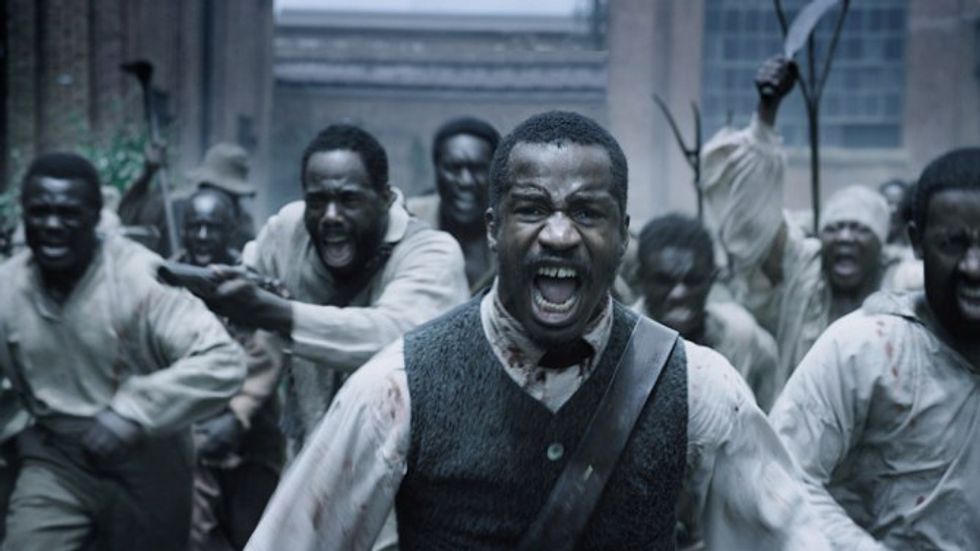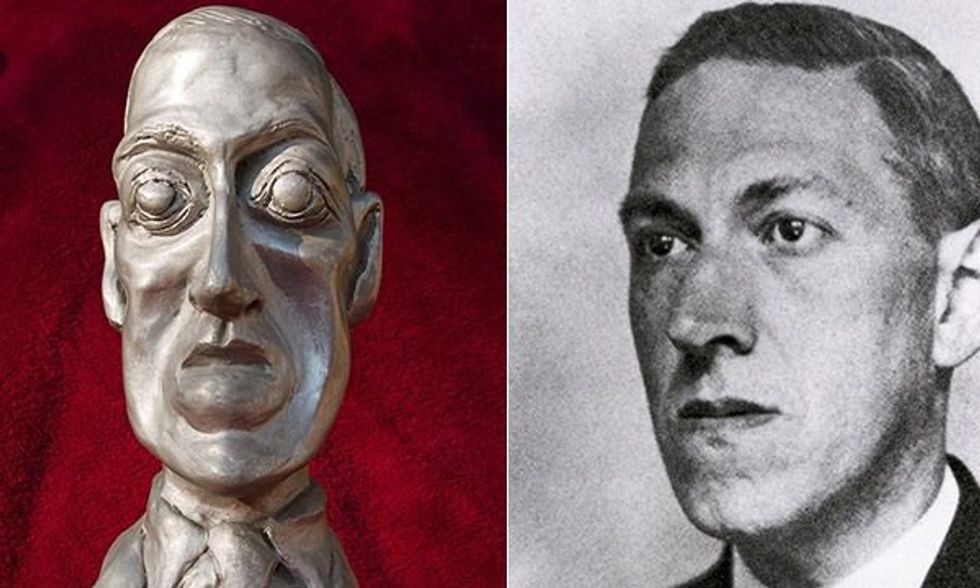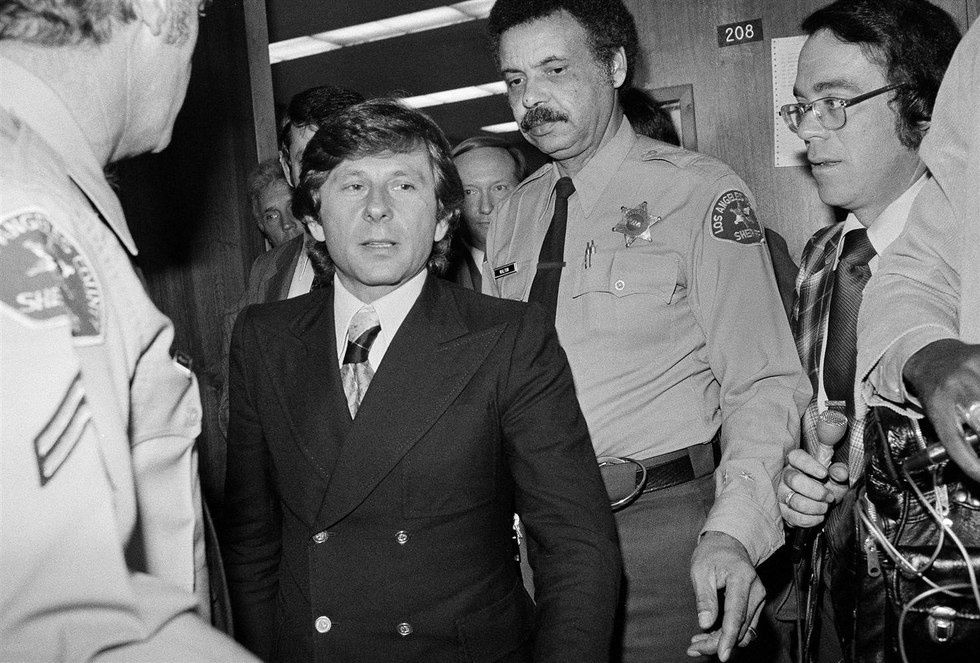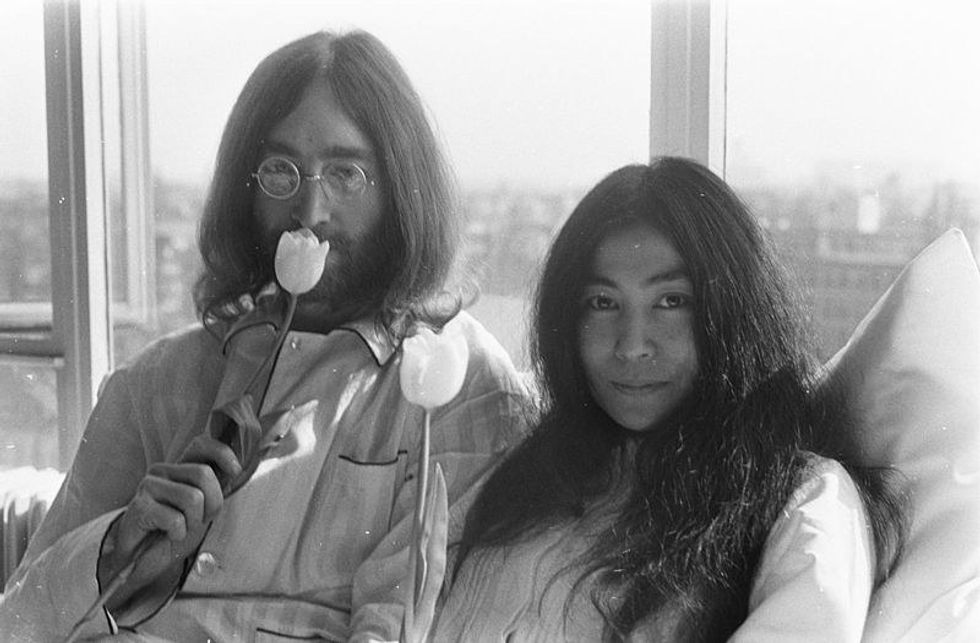In the wake of the controversy surrounding quarterback Colin Kaepernick’s protest over race and the national anthem, there’s been some media attention given to the anthem’s obscure third verse, which celebrates the deaths of rebellious slaves during the War of 1812.
In entertainment news, there’s been an ongoing conversation about the upcoming film "The Birth of A Nation" (not to be confused with D.W. Griffith’s 1915 racist epic) regarding director Nate Parker’s 1999 rape case. The advance reviews have been extremely positive, but the director’s reputation hangs over the film regardless.
These two prominent stories have caused me to ask a question I’ve asked many times before: is it possible to separate a work of art from the artist that produced it? Francis Scott Key was quite the racist, but does that mean the national anthem is tainted? If "The Birth of A Nation" proves to be as good as the early reviews suggest, is it any less great due to the accusations against the director?
It’s helpful to start with the great works of the past, and the way they’re viewed today. People often like to view their own time period as the peak of history, with every other period barbaric, perverse, or insane in comparison. If any of us were to be judged by the standards of a future we cannot predict, our attitudes would probably look painfully outdated, or even bigoted. To what degree is it fair to judge the people of the past according to the standards of today? Should we judge them by the standards of their own time, or is that being too forgiving of the prejudice and oppression of the past?
The further an artist is removed from our time period and context, the easier it is to overlook potentially disturbing facts about them. We still celebrate the great works of the ancient Greeks, and give little thought to their acceptance of slavery and pederasty. We readily accept that these people are products of their time, and that their concept of ethics differed considerably from ours. As their culture and time period gets closer to ours, artists are judged more harshly. Take last year’s campaign to change the design of the World Fantasy award, which at the time was a bust of author H.P. Lovecraft. While Lovecraft is primarily known as one of the most influential writers in horror fiction, his intense racism and cultural prejudice made some people uncomfortable with the award. While some people protesting the award seemed to be motivated by total disgust towards Lovecraft, writer Sofia Samatar weighed in with a more nuanced opinion:
“I am not telling anybody not to read Lovecraft. I teach Lovecraft! I actually insist that people read him and write about him! For grades! This is not about reading an author but about using that person’s image to represent an international award honoring the work of the imagination.”
Perhaps this is how we should deal with these sorts of controversies. We can acknowledge that an artist’s image has become irreparably bogged down by controversy, but remain appreciative of their accomplishments. In this sense, we can separate our appreciation of a work of art from some unsavory aspects of the artist as a person, without fully demonizing them. The documentary "Wagner & Me," about actor Stephen Fry’s (who is Jewish) love of Richard Wagner’s (a notable anti-Semite) music provides a great exploration into this issue that I don’t have time to get into here, and is definitely worth watching.
Coming to terms with more recent artists and their work can be more difficult. One of the more difficult cases comes from Roman Polanski, the legendary film director who was arrested for drugging and raping a young girl in 1977. He fled the United States before he could be sentenced, and has lived free in Europe ever since. When Polanski was arrested by Swiss authorities in 2009, over a hundred filmmakers signed a petition demanding his release. I have quite a bit of respect for many of these people and I’m sure they had a variety of reasons for signing, but I can’t help but be bothered by the petition.
Polanski was treated very gently by the criminal justice system in the first place, has since been sheltered by several European countries, and still retains the respect of his peers. Polanski’s success as an artist has repeatedly protected him from facing any severe penalties for his crimes. I wish that such a person made atrocious films, so I could simply disregard them. The problem is, I can’t help but respect Polanski’s talent, even as I’m disgusted by his actions. If I were to boycott his films, I would miss out on classics like ‘Rosemary’s Baby’ and ‘Chinatown,’ and my comfortable moral high ground would yield nothing.
There really isn’t a simple answer to this dilemma, but if there’s any kind of closure, perhaps we can look to John Lennon. There’s been a lot of talk on the internet about Lennon being a hypocrite, preaching love and peace despite being abusive to the people in his life. While few traits are more aggravating, hypocrisy does not invalidate a meaningful, well-told message. As much as the details of his abusive tendencies are treated as a shocking revelation today, Lennon was fairly open about his failings. In a 1981 interview with "Playboy," he opened up about his past:
I fought men and I hit women. That is why I am always on about peace, you see. It is the most violent people who go for love and peace. Everything's the opposite. But I sincerely believe in love and peace. I am a violent man who has learned not to be violent and regrets his violence. I will have to be a lot older before I can face in public how I treated women as a youngster.
Lennon didn’t bother with excuses, he simply admitted that what he had done was wrong, and that had grown as a person. We shouldn’t overlook the crimes and failings of artists, but judging someone purely based on their worst impulses isn’t entirely fair. Artists learn and change, just like anyone else, and even incredibly flawed people can accomplish great things.

























